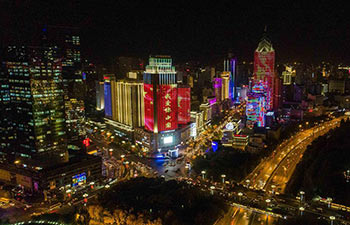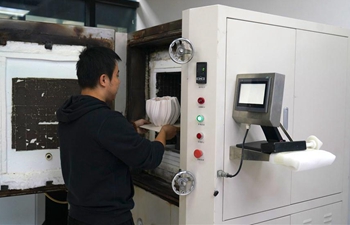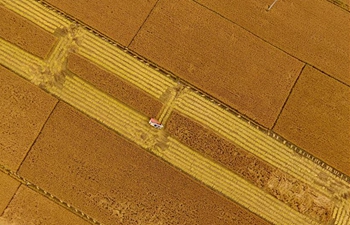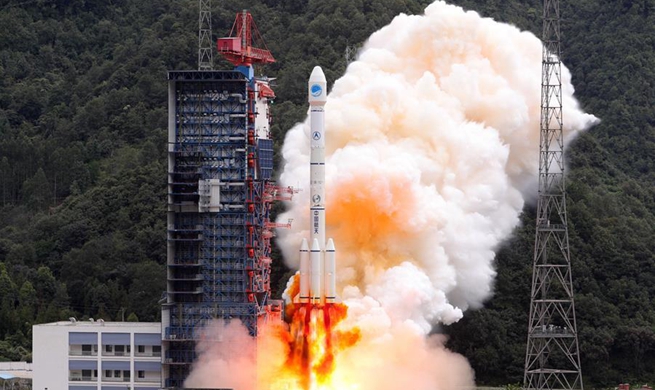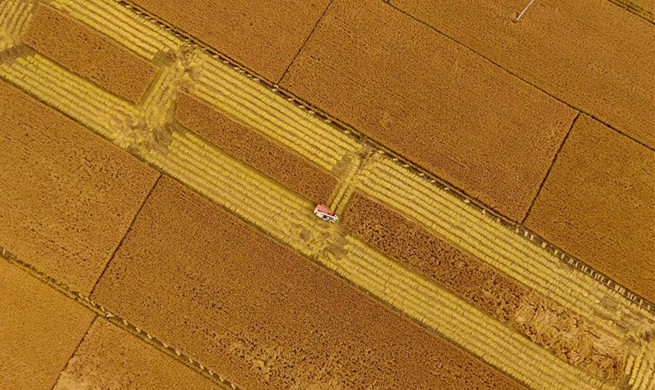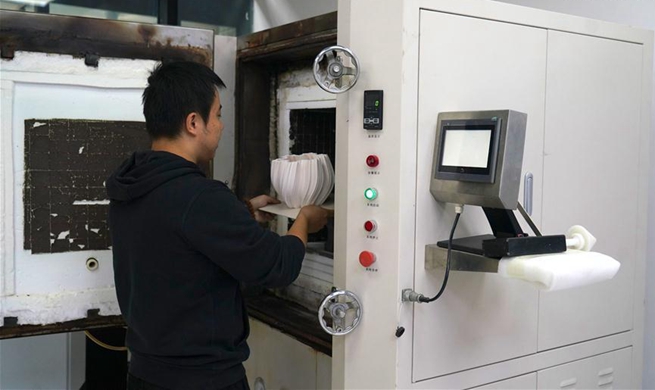BEIJING, Oct. 16 (Xinhua) -- China's consumer price index has increased at a faster pace for four consecutive months by September, but experts believe inflation will remain in a benign range.
China's consumer price index (CPI), a main gauge of inflation, rose 2.5 percent year on year in September, compared with 2.3 percent for August, the National Bureau of Statistics (NBS) said Tuesday on its website.
The September figure was the highest since February 2018, when the CPI peaked at 2.9 percent year on year, driven mainly by the Spring Festival holiday factors. The acceleration was driven by a fast increase in non-food prices, which rose 2.2 percent year on year, contributing to a 1.78-percentage-point growth in the overall CPI increase. Prices for medical products and services rose 2.7 percent year on year, transport and communications prices gained 2.8 percent, while educational, cultural and entertainment prices rose 2.2 percent.
Prices for dwelling-related expenses, including rent and utilities, rose 2.6 percent year on year.
Food prices rose 3.6 percent year on year, contributing to a 0.69-percentage-point increase in the overall CPI increase.
The prices for eggs, fruits and vegetables went up 6.2 percent, 10.2 percent, and 14.6 percent, together resulting in a CPI rise of about 0.55 percentage points.
On a month-on-month basis, the CPI increased 0.7 percent from August, as food prices rose 2.4 percent from August.
NBS statistician Sheng Guoqing said vegetable prices surged 9.8 percent from the previous month due to extreme weather conditions, including typhoons and heavy rains, in some regions.
The rising demand for pork and eggs for the Mid-Autumn Festival and National Day holiday also caused price hikes, Sheng said.
"We believe that investors should keep an eye on developments around African swine fever, but that the risks to headline inflation from other factors -- floods in the city of Shouguang, sky-rocketing rents in Beijing, RMB depreciation and escalating China-US trade tensions -- are overdone," Asian investment bank Nomura said in a research note, shrugging off worries about rising inflation risk.
China reported its first case of African swine fever in August in Liaoning Province. Later outbreaks were reported in several other provincial regions.
"We maintain our call for a mild rise in CPI inflation to 2.1 percent in 2018 from 1.6 percent in 2017," read the Nomura report. It expected the CPI inflation to moderate over the next couple of months as vegetable prices normalize. China is aiming to keep the annual CPI growth at around 3 percent this year, the same target as that of 2017. The average year-on-year CPI growth for the first nine months stood at 2.1 percent, compared with 2 percent for the first eight months, according to the NBS.
The producer price index, which measures costs of goods at the factory gate, rose 3.6 percent year on year in September, slowing from the 4.1-percent increase in August.






